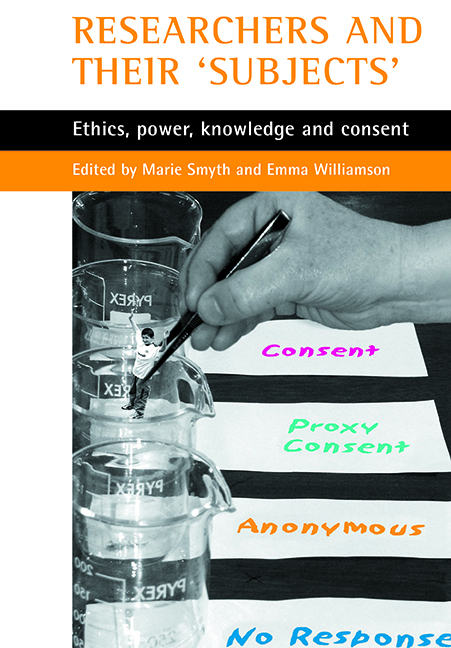six - Researching end of life in old age: ethical challenges
Published online by Cambridge University Press: 20 January 2022
Summary
Debates about the most appropriate way to research the relationship between old age and death highlight many of the ethical dilemmas facing all researchers, and social researchers specifically. In this chapter, we review the ethical issues that arose when developing the methodology for a one-year pilot study exploring the lives of 100 people over the age of 80. These ethical dilemmas included whether older people with dementia can or should consent to research participation; whether it was appropriate to obtain proxy consent from carers; how the ethical issues which arose were addressed through a Research Ethics Committee (REC); and how we, as researchers, dealt with ethical issues as they arose within the research interaction.
Introduction
The relationship between old age and death is poorly understood (Harper, 2000). Despite increasing concern about the care of older people, recent health and social care policies on ageing make few references to death and dying. The emphasis is on maintaining and restoring the independence of older people (DoH, 1998; Royal Commission on Long Term Care, 1999). This results in an inadequate policy framework for developing services for older people who are increasingly dependent on others and for whom rehabilitation services are no longer appropriate (Lloyd, 2000). The National Service Framework for Older People (DoH, 2001) marks a new development in government health policy in acknowledging the need for better end-of-life care in old age and for rehabilitation and support as health declines. However, increased awareness does not necessarily translate into improved practice. Evidence suggests strongly that the responses of health and social services to older people’s needs are patchy and inconsistent (Henwood, 2001).
The research project discussed in this chapter aimed to explore these issues in depth from the perspective of older people themselves. By listening to older people’s accounts of their lives, we hoped to better understand their involvement in key decisions made about their lives by health and social care professionals. The project was funded as a pilot study to test and refine our prospective longitudinal approach prior to undertaking a larger study. While older people were the focus of this project, they were also actively involved in the project advisory group helping us to plan and fine tune the research methodology.
- Type
- Chapter
- Information
- Researchers and their 'Subjects'Ethics, Power, Knowledge and Consent, pp. 105 - 118Publisher: Bristol University PressPrint publication year: 2004



